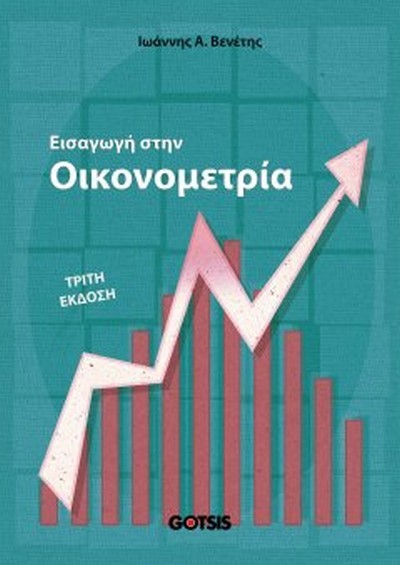Introduction to Econometrics
This book can be considered as the result of the lectures of the course of Econometrics in the Department of Economics of the University of Patras in recent years. The main purpose of the book is the introduction of students / three in Econometrics, emphasizing its empirical importance and application in Economics.
The first chapters devote time to the interpretation of concepts that make up the "dialect" of modern Econometrics, which are usually expressed in the form of statistical hypotheses, as well as to the interpretation of mathematical specializations that the student encounters in the context of applied Econometrics. For example, concepts such as the disruptive term and the hypotheses that govern its contemplative behavior, fictitious correlations and the existence of trends in time series data, logarithms and other specializations of variables mainly in stratified data.The following chapters study the simple and multiple regression model as the main tools of empirical econometric analysis and emphasize the control of general linear hypotheses with respect to the parameters of the multiple model.
Exercises are provided in all chapters, both theoretical (ie technical) and empirical. The latter are of major importance, as without the immediate practice of the student with real data but also data produced by himself / herself through simulation it is extremely difficult - for the majority of students / three - to understand in depth the purpose and importance of Econometrics in Economic analysis, and therefore to "embrace" the object.
The book can meet different degrees of difficulty of the course, but always at the undergraduate level. The first 6 or 7 chapters can be the main teaching body of the course in departments of higher education institutions.
| Χαρακτηριστικά Προϊόντος | |
|---|---|
| ISBN | 9786185560096 |
| ΠΑΝΕΠΙΣΤΗΜΙΟ | |
| ΜΑΛΑΚΟ | |
| 3η | |
| 2021 | |
| 752 | |
| ΕΛΛΑΔΑ | |













